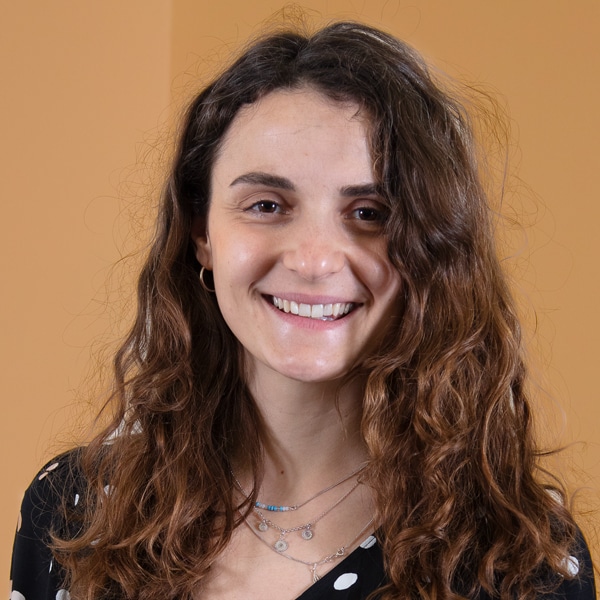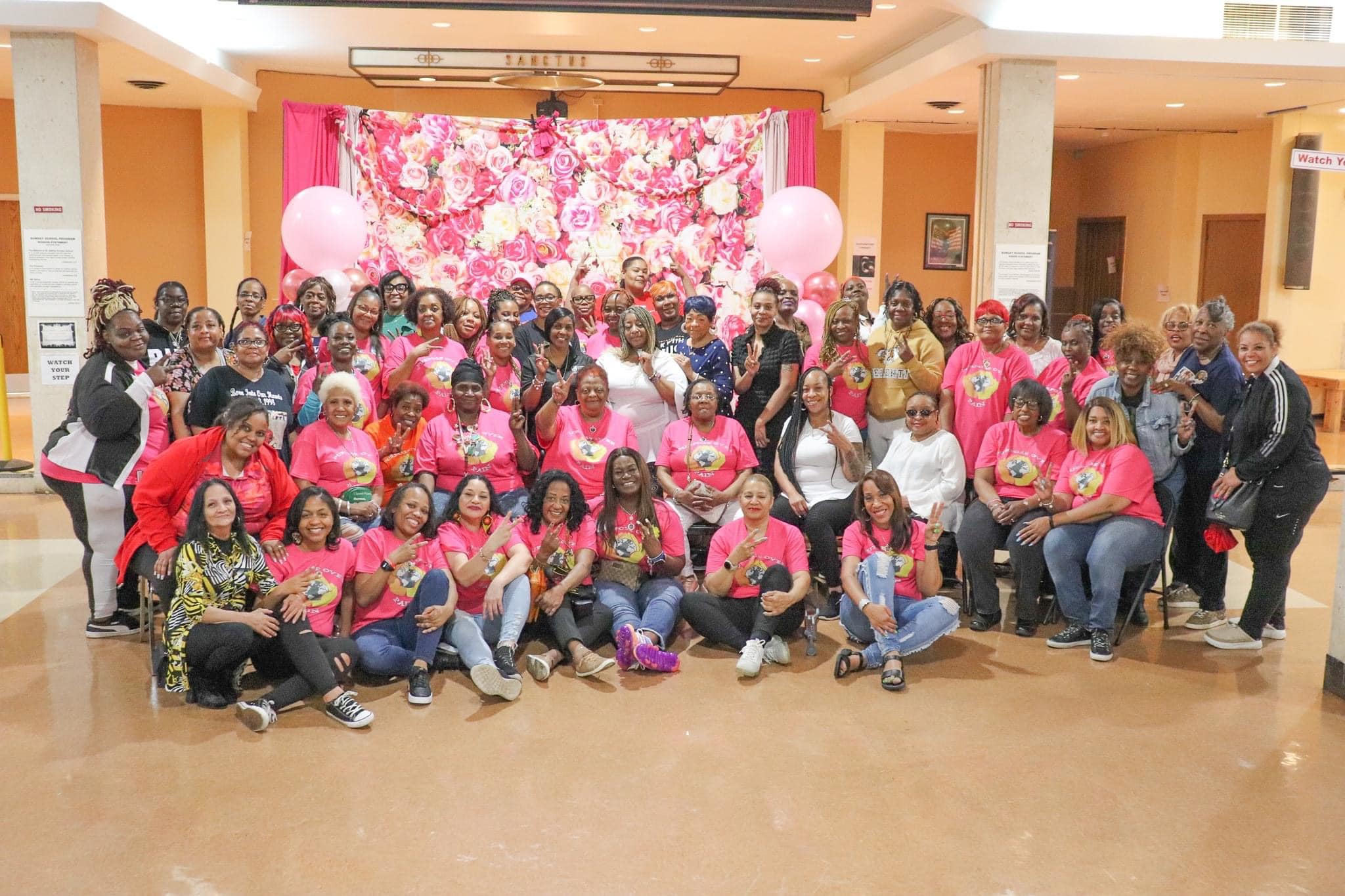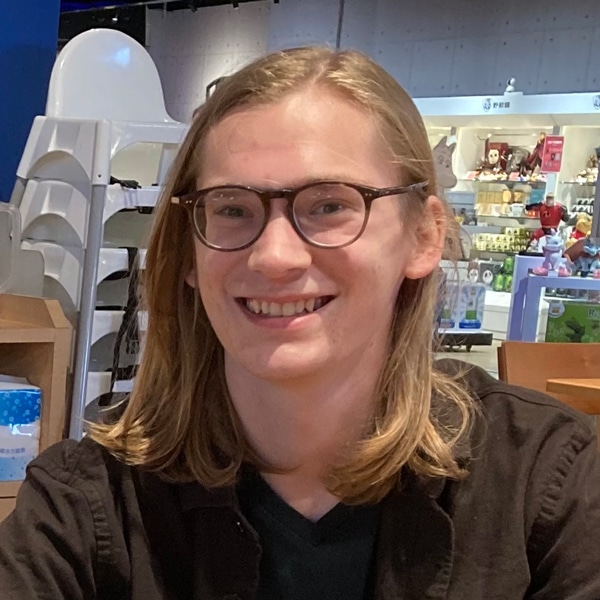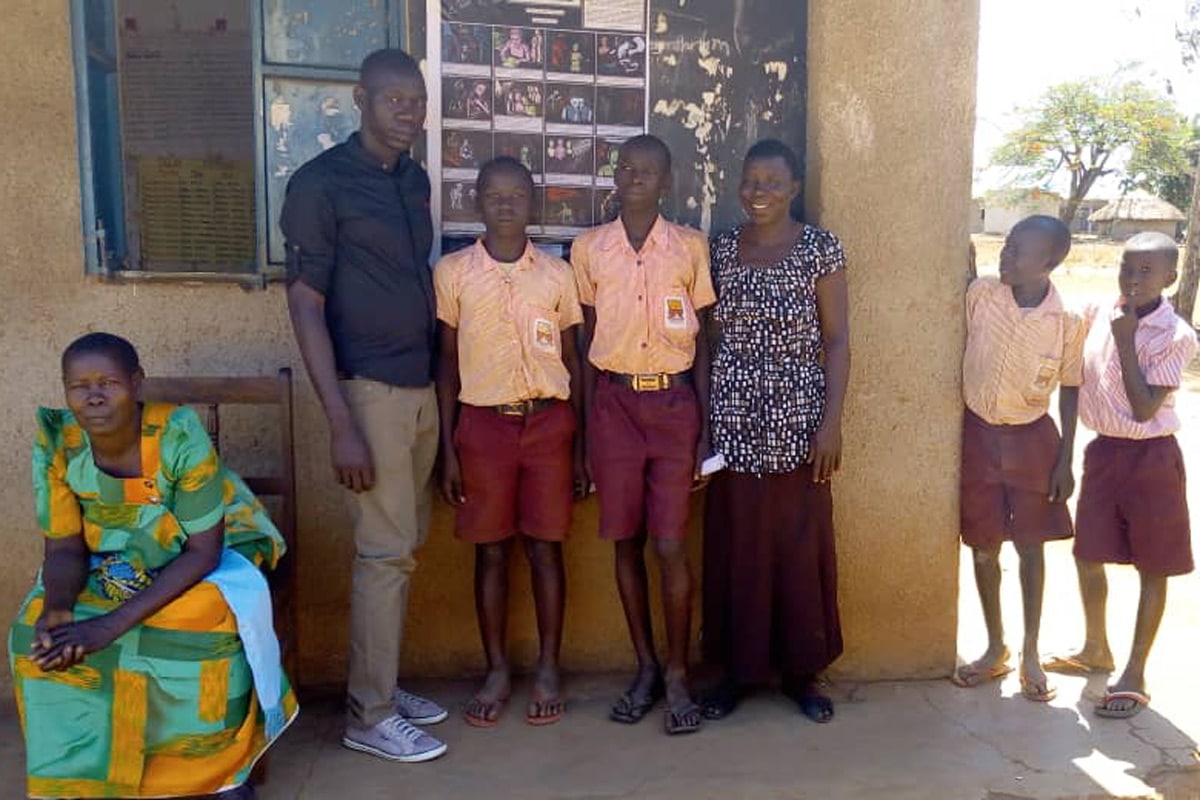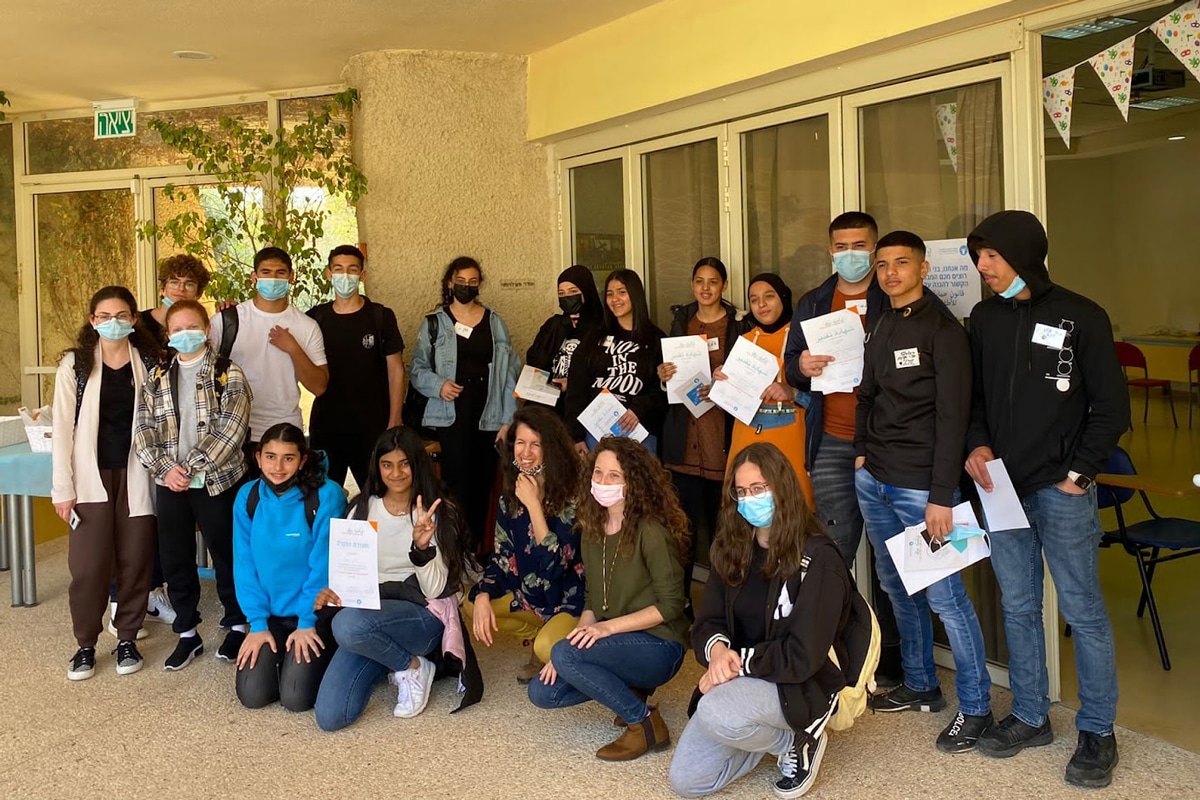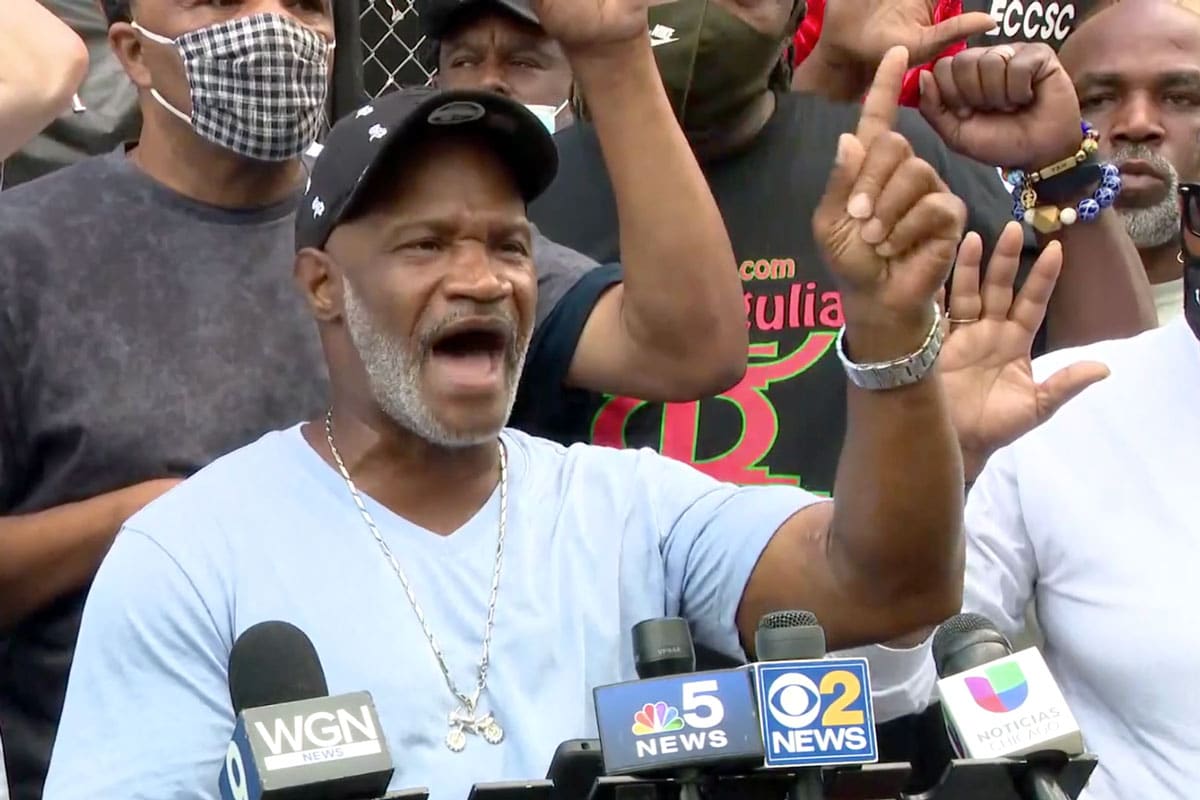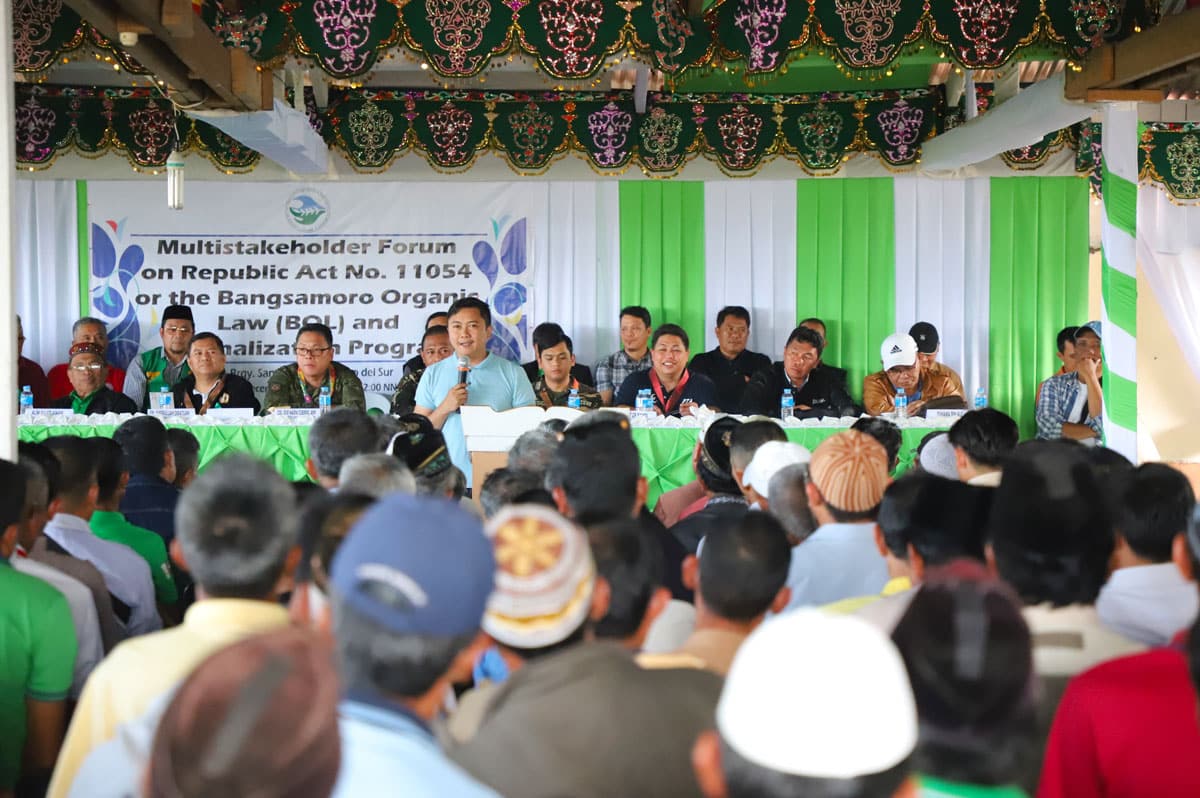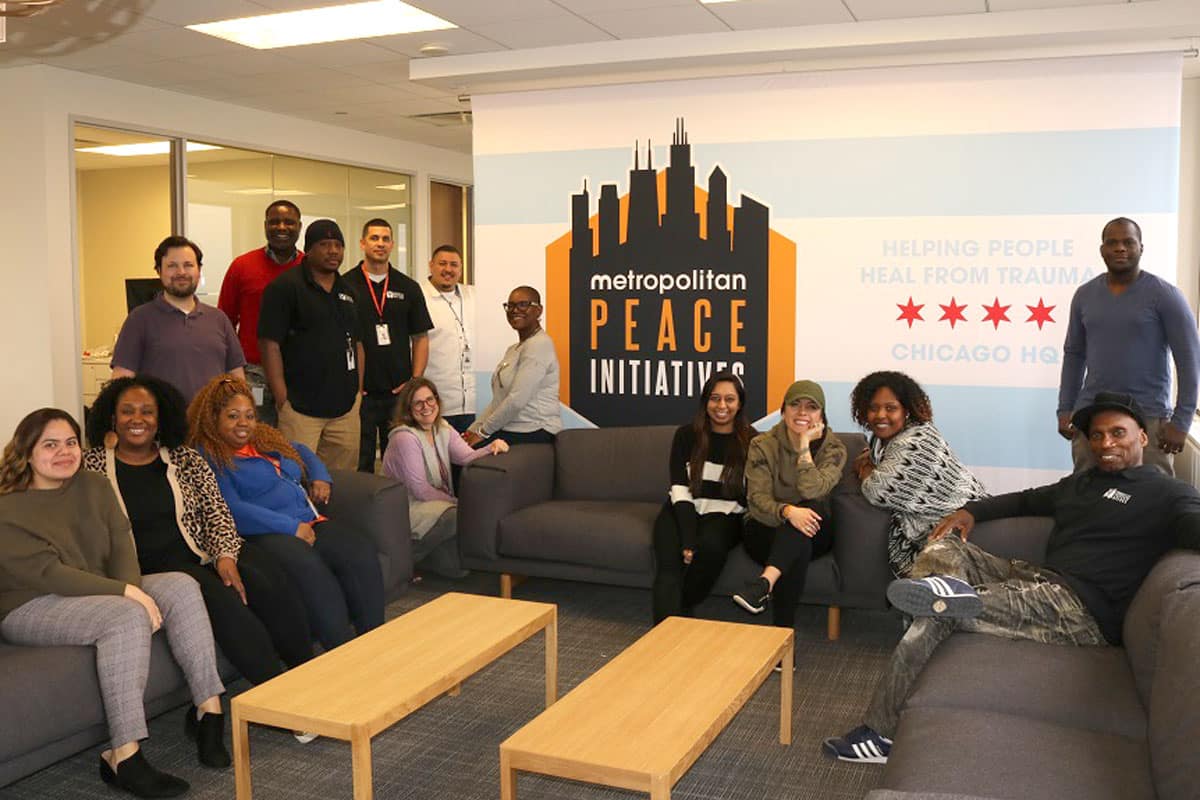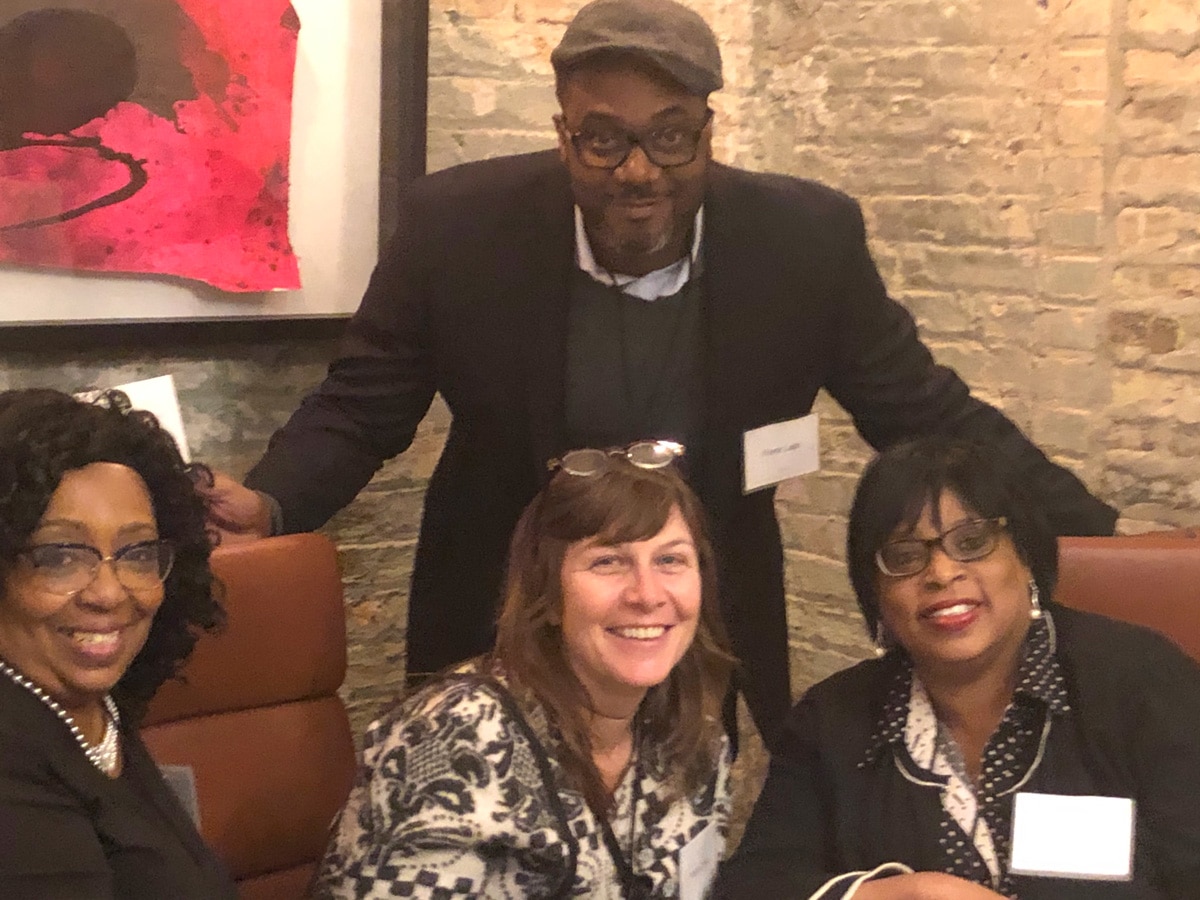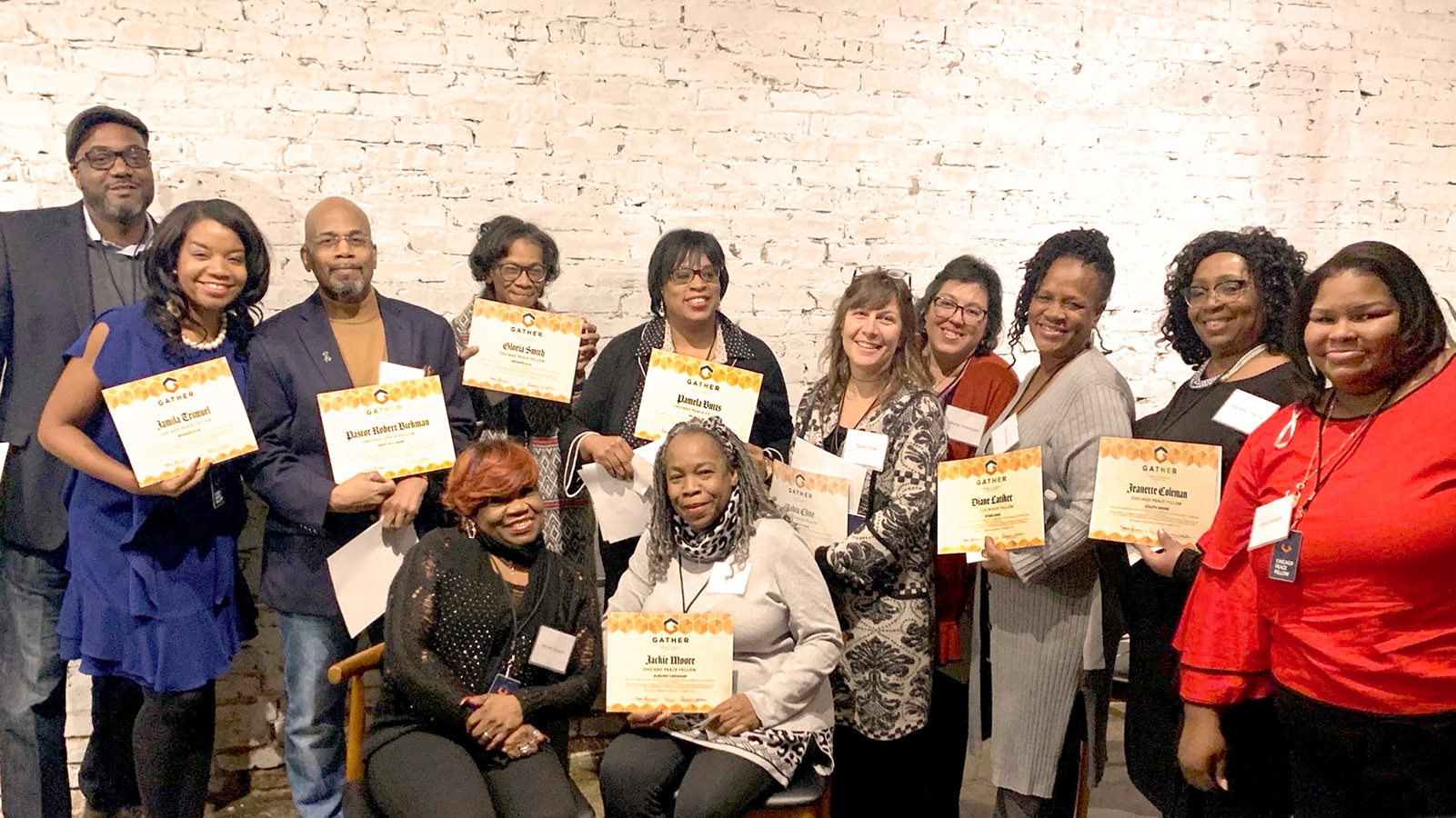Interfaith Advocacy to Promote Children's Safety in the Philippines
This July Andy Alegre, 2021 Goldin Global Fellow from the Philippines, engaged in the Regional G20 Interfaith Meeting in Manila (the capital city of the Philippines), moderating a session focused on the online sexual exploitation of children. In this piece, he speaks to Goldin Institute about his experience at the meeting and lessons learned. He also shares a few tips on communicating and working with people from diverse backgrounds while respecting differences to solve issues affecting the community.
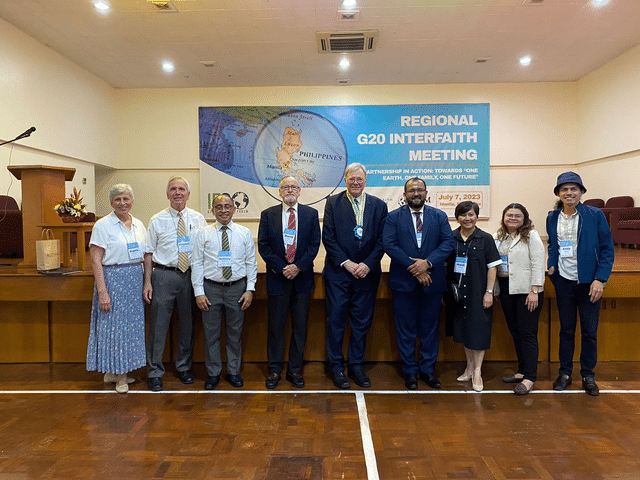
Andy, a people person, emphasizes how being a Global Fellow and offered him global perspectives from his peers during weekly roundtable discussions and connections and during monthly Alumni network roundtables.
He starts our conversation with the Regional G20 Interfaith Meeting in Metro Manila. The five issues highlighted in the meeting were: 1. the interacting demands of climate reform and humanitarian action, 2. emerging challenges of online sexual exploitation, 3. trafficking and modern forms of slavery, 4. children’s education concerning their rights, especially in conflict and abuse situations, 5. protection of freedom of religion and belief.
“It was an excellent opportunity for me to actively know, engage, share, and learn from faith leaders and experts from the government, non-government organizations, and communities on issues that affect most Filipinos.” -
Andy Alegre
The engagement and meeting were significant for Andy, his advocacy, and his community because, according to him, they amplified the issue to various leaders and promoted collaborative recommendations and action.
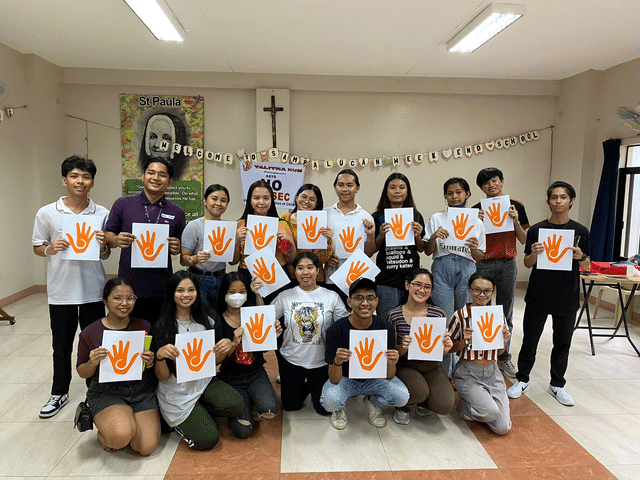
The Importance of Embracing Differences in Interfaith Settings
After the plenary session of experts sharing the five topics, almost 90 meeting participants were divided into five groups based on the thematic areas. Andy moderated one of the breakout sessions, focused on the online sexual exploitation of children, with 29 attendees which he states did not go without its challenges.
“The breakout session was designed to elicit recommendations from attending representatives from various government agencies, non-government organizations, faith-based communities, and networks. I started by calling in some discussion starters to share challenges, best practices, and initial recommendations on the issue.”
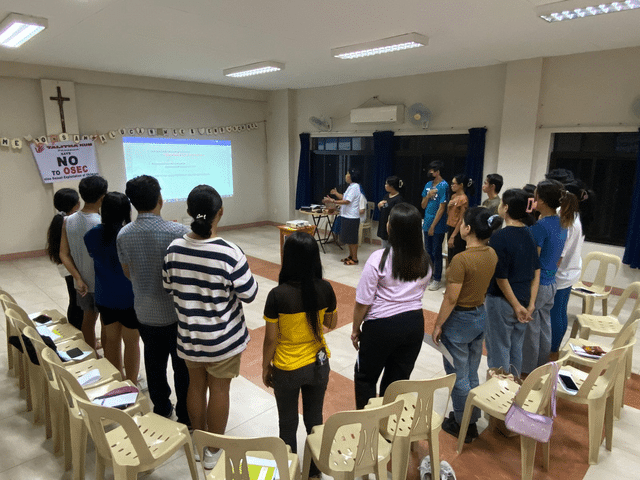
Andy recalls that one of the challenges moderating the session was balancing the time for all breakout attendees to elicit valuable input and stay on the course of the discussion quickly: “Some participants wanted to share much input, but the session had a limited period, and I had to gently remind them to wrap up so as not to take the time reserved for others.”
Another challenge, Andy adds, was summarizing the main points shared and ensuring that all recommendations were captured when wrapping up the discussion. Since he engaged with representatives from the government, church institutions, academia, and faith-based organizations, he also shared some advice on how to best work with people from different backgrounds. He reminds us of the importance of valuing anyone with a unique way of expressing, responding, and contributing to solving an issue that affects us.
“Embracing differences and respectful acceptance are approaches I use when working with people from various backgrounds. I also ensure to address them with the title that they want to be addressed. It is also helpful for me to engage these various representatives because of my experience serving in these institutions and knowing the system and culture.”
- Andy Alegre
Andy believes that being respectful and open are valuable traits that allowed him to be successful in his engagements.
Meeting with International Advocates in the GATHER Platform
Andy met grassroots leaders from around the world two years ago to learn and work together, as a Community of Practice, through the Goldin Global Fellows program, which he cherishes today. “My experience as a Goldin Fellow has been excellent as I learned valuable lessons, methods, tools, and approaches in my community development and engagement work.” he says.
While discussing influential resources, Andy mentions the GATHER platform:
“The GATHER platform tremendously contributed to my learning as a professional and community activist. The platform was easy to navigate and use and facilitated intuitive and practical learning by providing useful concepts and examples for community leaders like me."
- Andy Alegre
In addition to the content on the platform, what enriched Andy's learning was his fellow cohort members' meaningful and valuable reflections and contributions. “I also appreciate that the program is so inclusive – multi-generation, multi-faith - with fellows from all over the world with diverse backgrounds and identities” he says in a conclusive note.
Suggested Article:
Meet the 2023 Goldin Global Fellows English Language Cohort
A New Resource for Victims of Gun Violence
By: Zeki Salah, Communications Associate
A new resource for families of victims of gun violence was recently launched by 2020 Chicago Peace Fellow, Pamela Montgomery-Bosely. Her organization, Purpose Over Pain, recently launched a 24-hour crisis response hotline for people coping with the loss of a loved one from violence. The hotline is active from 7pm on Friday to 7pm on Sunday and can be reached by dialing 872-3CRISIS or (872) 327-4747.
Since its inception in 2007, Purpose Over Pain has expanded from a small non-profit run by parents of victims of gun violence to an organization with full-time staff that work Monday through Friday. The organization provides positive development activities for children and youth, advocates for and promotes safer communities, and strengthens families by providing crisis support to parents or guardians whose children have been victims of gun violence. Most of Purpose Over Pain’s services are provided on weekdays, which up until now has left a gap in the services provided to families of victims of gun violence over the weekend.
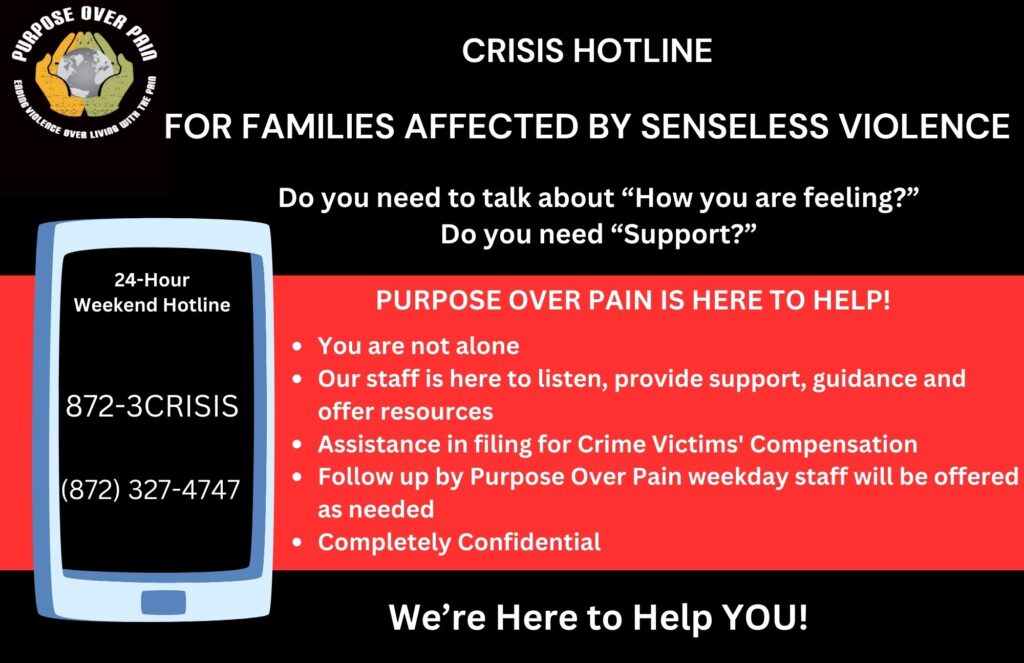
The crisis response hotline is intended to serve families at any point during the weekend, which is when gun violence tends to peak. Prior to opening the hotline, Purpose Over Pain would receive messages and calls throughout the weekend from people needing support after friends or family members had become victims of gun violence. Pam explains:
“Over the weekend, people struggle, because that's when the violence is extremely high. So, while we are available Monday through Friday, I wanted to be available on the weekends, but not my full time staff since they are survivors too.”
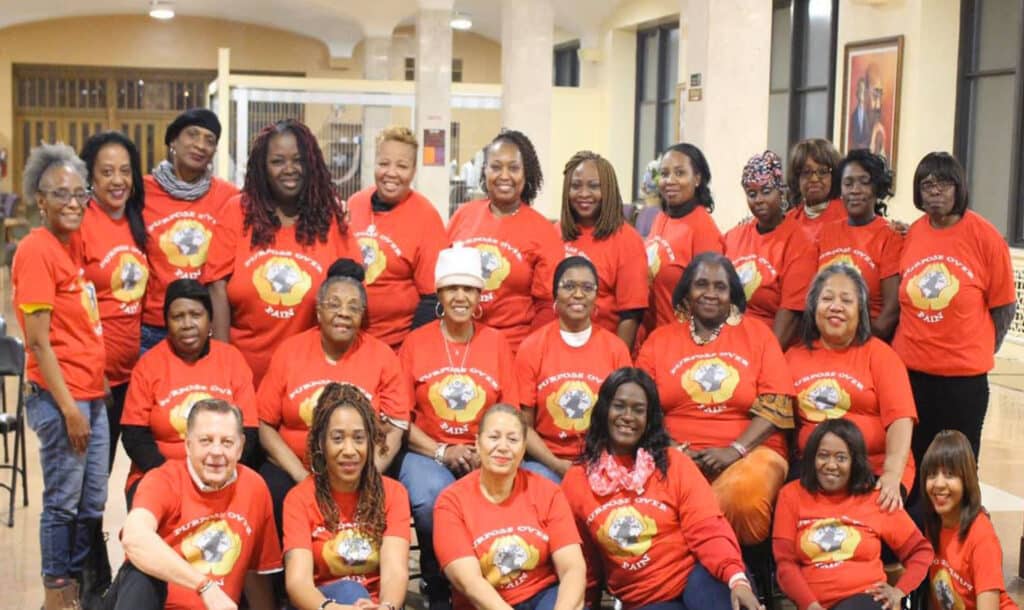
Purpose Over Pain hired four operators to work the gun violence prevention hotline over the weekend, so that Purpose Over Pain’s existing staff would not be overburdened.
All of the operators have first hand experience with gun violence, having lost either children or relatives, and are trained to listen to and provide guidance to people dealing with a tragic loss. Pam describes the role of the responders:
We want to be there to support people and let them know that they’re not alone. Our staff is there to listen. Many parents have their children shot and killed in the middle of the night and might receive a call at 2 in the morning with the news. You can’t sleep after news like that, so we wanted to make sure that there is someone there to listen to them, to provide support, to provide guidance, and to provide resources.
Pam also works on the hotline covering for the other responders in case they are unavailable or if it is the anniversary date of their loved one being murdered.
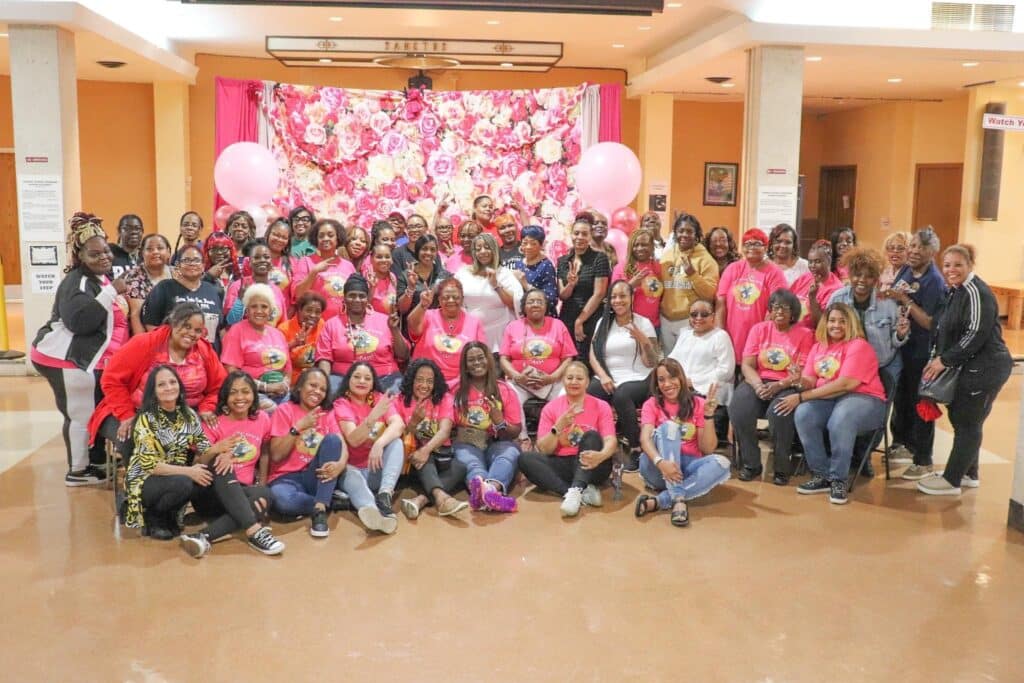
Resources that the operators can link victims include support circles, counseling, financial resources, and job programs. Purpose Over Pain offers memorial services, support days, and mentoring sessions as part of its regular programming. Hotline operators can also link victims to outside resources. For instance, hotline operators often help victims fill out a Crime Victim Compensation Form. This form is part of the Illinois Attorney General’s Crime Victims Compensation Program which is intended to reduce the financial burden imposed on victims of violent crime and their families by providing up to $45,000 for expenses incurred by eligible victims as a result of a violent crime. Purpose Over Pain also has a full resource book that can link victims to programs that provide housing, food, clothes, and jobs. They network with other organizations, such as St. Sabina’s, so that they can connect victims with resources close to them and that are relevant to their needs.
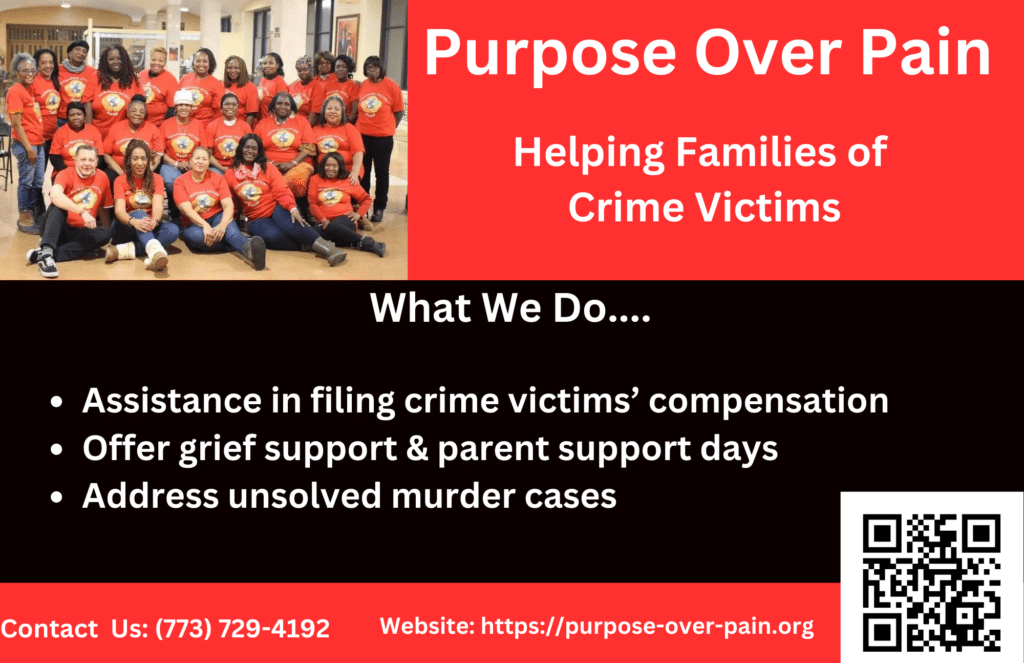
Purpose Over Pain’s hotline is the first of its kind in Chicago, previously there was no 24-hour crisis hotline for the friends and families of victims of gun violence. Now, victims can be supported by community members that have lived through similar experiences. Pam emphasizes, “When you call and they pick up the phone you’ll have a survivor, someone who understands what you’re going through. It’s not like you’re getting an automated message, you’re getting a live voice. I don’t want people to think they’re alone because they’re not, we’re here for them.” The Purpose Over Pain hotline has been created by community members for community members and will continue to provide pertinent and needed care to victims of gun violence.
A Look Back on 2022: a year of growth and strengthened solidarity around the globe
By Jassi K. Sandhar, Global Research Fellow
As we wind down the end of another year, I am amazed at how much we have achieved within our network and the strides we have made, both as individuals and as a collective. Our global network and partners continue to accelerate their efforts to attend to the most urgent and pressing needs of their communities. We witnessed increased levels of solidarity, more calls for positive action, strengthened collaborations and shared leadership. We end this year with 150 alumni (representing 40 countries) who have graduated from our Fellows Program and are now part of our wider network.
We have compiled a month-by-month timeline of the achievements of our grassroots leaders below. Despite some challenging times, our network continue to respond with compassion, empathy, and commitment to social justice. We end the year by thanking our dedicated supporters whose commitment made many of this year’s successes possible. We look forward to your continued support for community-driven social change in 2023!
January
We commemorated the 12th anniversary of the Haiti earthquake (which had a devastating and lasting impact on the country), by sharing an update on the current situation and launching our “Global Solidarity with Haiti campaign” to support our partners Daniel Tillias and Malya Villard-Appolon, who are on the frontlines responding to those most in need.
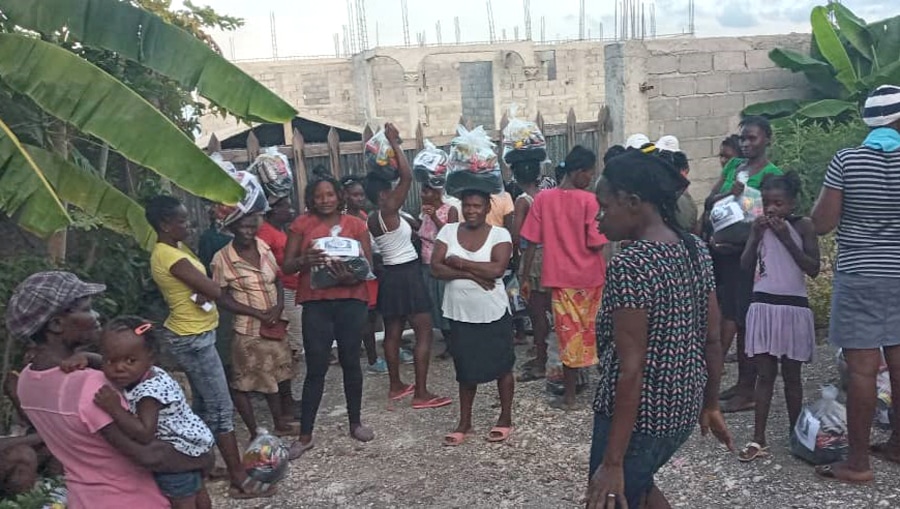
Our alumni in Liberia, Jennifer Henshaw, and her organization LEGAL which works to support the LGBT communities in the country, celebrated their 10th anniversary. Jennifer provides a reflection on their 10-year journey, including their long-standing achievements and ongoing challenges.
January was also a month of collaboration between our global partners. Our partners in the Philippines, Andy Alegre and Susana Salvador-Anayatin, joined forces to deliver urgent humanitarian relief to families following Typhoon Odette in the Philippines. Our 2021 Global Fellows Mathias Ngong Njoya (from Cameroon) and Gopal Iyer (from the UK) also collaborated to host a two-day workshop which brought together 30 youth from 15 countries in Africa and Asia. The workshop was designed to help and guide youth on professional development planning.
February
This month, our 2021 Global Fellows provided an update on their collective campaign; 24 grassroots leaders created a joint fundraising campaign to raise money to support their continued social change projects in their countries. Collectively they raised $12,000. John Kamma, 2021 Global Fellow from Liberia, used those funds to initiate a community clean-up day in Glass Factory community (which is an overpopulated but underserved community).
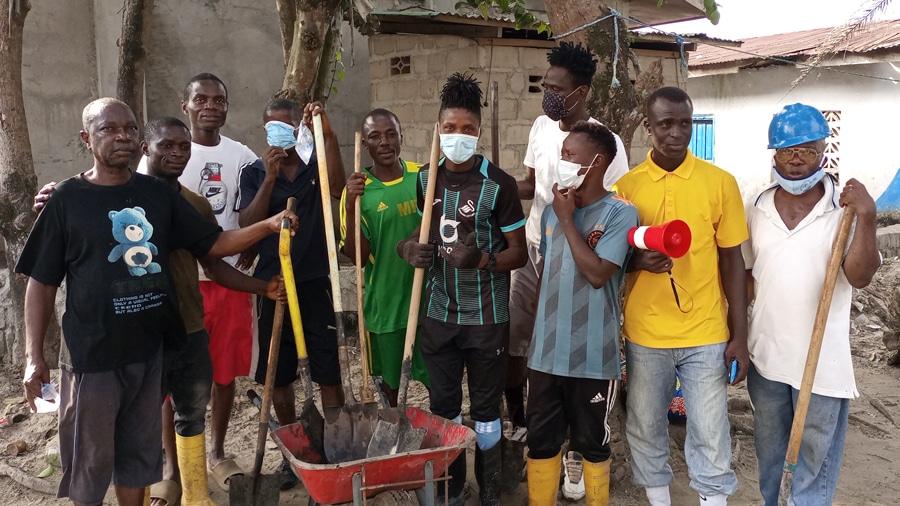
This month, the Chicago Peace Fellows Mutual Aid Collaborative also held a press conference on the anniversary of the assassination of Malcolm X to amplify the themes of their open letter, A Pathway to Anti-Racist Philanthropy.
2021 Global Fellow from The Philippines, Andy Alegre, commemorated International Day of Prayer and Awareness Against Human Trafficking by organizing an online prayer session together with churches and various organizations using a special vigil of prayer specific to this event. This month, Chicago Peace Fellow Jamila Trimuel’s organization also hosted their annual LOV Day, a day dedicated to “show love to our Black girls!”.
March
We welcomed our 2022 Chicago Peace Fellows! 14 grassroots leaders representing 14 different communities across Chicago joined the Fellows program to learn, share, and collaborate together as a Community of Practice.
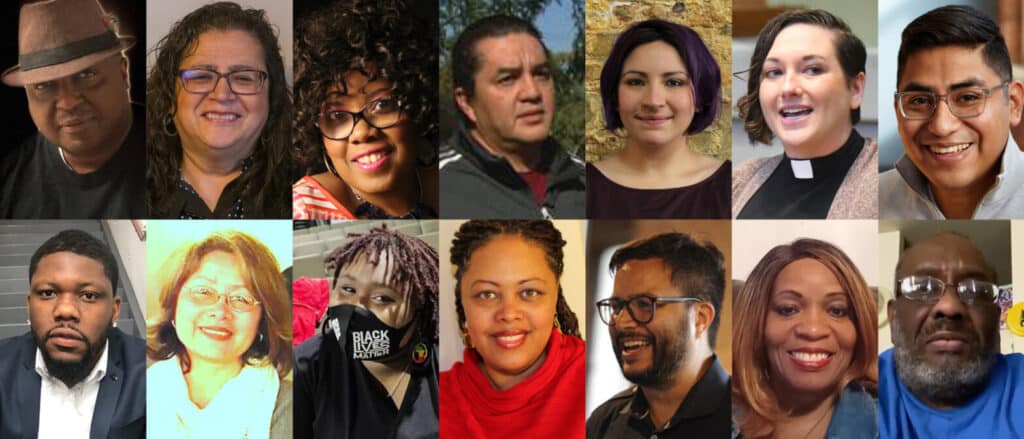
Our 2021 graduates of the Chicago Peace Fellows Program also organized and enjoyed a retreat, to collaboratively focus on rest, restoration and reflection in beautiful surroundings and to strengthen the bonds between them.
We also saw collaborations between DePaul University (Chicago) and Global Fellow Berry Behr (South Africa) which helped document oral history testimonies to capture the interfaith efforts from leaders on the front lines of ending apartheid.
April
Goldin Global Fellow Munyaradzi Dzimunwe from Zimbabwe partnered with She Trades to provide training for women entrepreneurs in the country to help them sell their products on international markets.
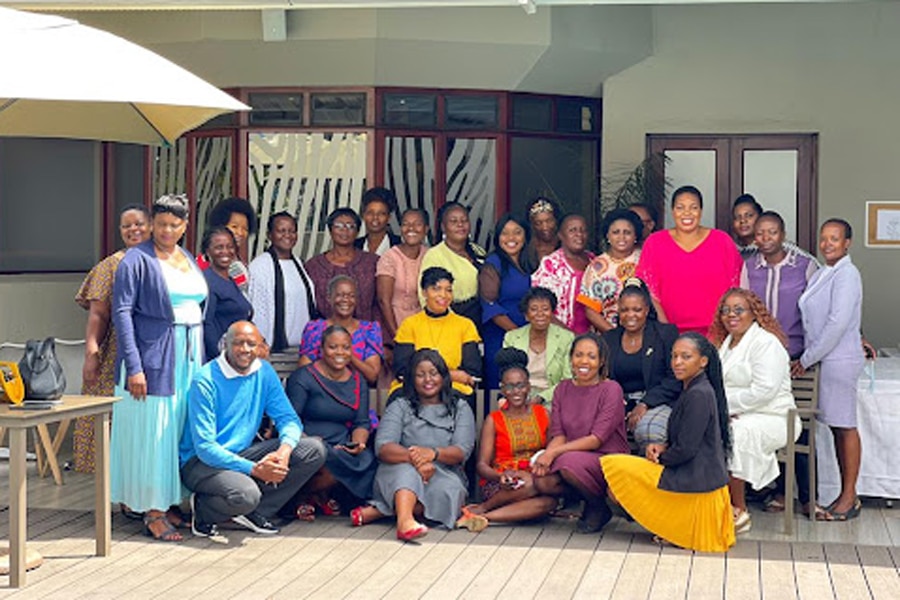
Goldin Global Fellow Nicholas Songora Odoll also provided an update on the critical work of the Manyatta Youth Entertainment (MAYE) in the coastal counties of Kenya to promote social accountability, civic education, and social justice using creative arts. Chicago Peace Fellow, Annette Kelly, also helped host a series of workshops on Violence Prevention in Chicago through her work with the Chicagoland Vaccine Partnership (CVP) in the communities hardest hit by COVID and violence.
The 2022 Chicago Peace Fellows also met for the first time to begin their Fellows Program; the launch brought together a powerful community of activists, artists, social workers, and community leaders representing 14 community areas on the South and West sides of Chicago.
May
Chicago Peace Fellows provided 300 Mother's Day bouquets to mothers who have lost their children to violence in Chicago, bringing comfort to families impacted by gun violence and raising support for peace building projects in Chicago to prevent these tragedies in the future.
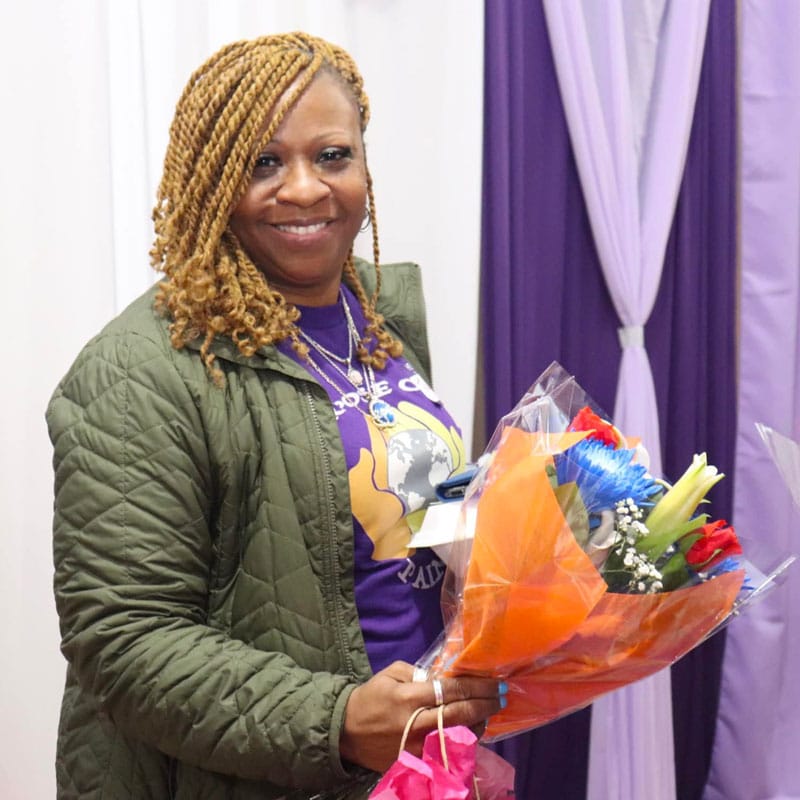
2018 Goldin Global Fellow Cynthia Luvlee shares an inspiring update from Shyne San Diego, sharing the principles that powered the exponential growth of the Shyne Survivor Business Network™ which recently enrolled its 50th survivor entrepreneur!
We also received an update from Global Fellow from Liberia, John Kamma, who worked in collaboration with Catalyst 2030 and his team to mobilize his community to improve health and sanitation and hosted a conversation on narrowing the "justice gap" in the Glass Factory neighborhood.
Mahdar Tahir, Goldin Global Fellow from Malaysia and founder of the Crescent Collective, shared his insights as a panellist for a discussion on religious freedom for which he spoke about the role of religious leaders in building social harmony.
June
In June we welcomed 14 grassroots leaders from around the world onto our 2022 Global Fellows Program! This is the third cohort embarking on the four-month program, where Fellows worked and learnt together as a Community of Practice.

The Chicago Peace Fellows Mutual Aid Collaborative held the Second Annual Concert for Peace at the Hatchery on June 4th, celebrating the artistic accomplishments of their communities and a shared commitment to improving their neighborhoods. The Mutual Aid Collaborative also worked to address an increased demand for blood from Black and Brown donors through holding the #OurBloodMatters blood drive as part of the ongoing project called The Safety Net.
Chicago Peace Fellows hosted a conversation at the Firehouse Community Arts Center on June 3 2022 to discuss community safety and crime data with the University of Chicago Crime Lab as part of the Mutual Aid Collaborative’s Civic Leaders series. This month, Chicago Peace Fellow Pilar Audain also partnered with theater company Collaboration to design and host Moonset Sunrise, a theatrical experience rooted in healing, self-care and collective growth through song, storytelling, dance and ritual.
To solidify and spread the benefits of the peace agreement in the Southern Philippines, Global Fellow Lo Ivan promotes the need to lean into the indigenous culture of volunteerism, known locally as "bayanihan", as a peace multiplier that shapes the Bangsamoro youth as proactive agents of peace, development, and social transformation.
July
In July we launched our first ever Global Fellows Program in Spanish! We welcomed 17 grassroots leaders and activists onto the program, who undertook the curriculum and engaged in the journey together in Spanish. These Fellows live and work in Argentina, Bolivia, Chile, Colombia, Haiti, Mexico, Spain, the United States and Venezuela.
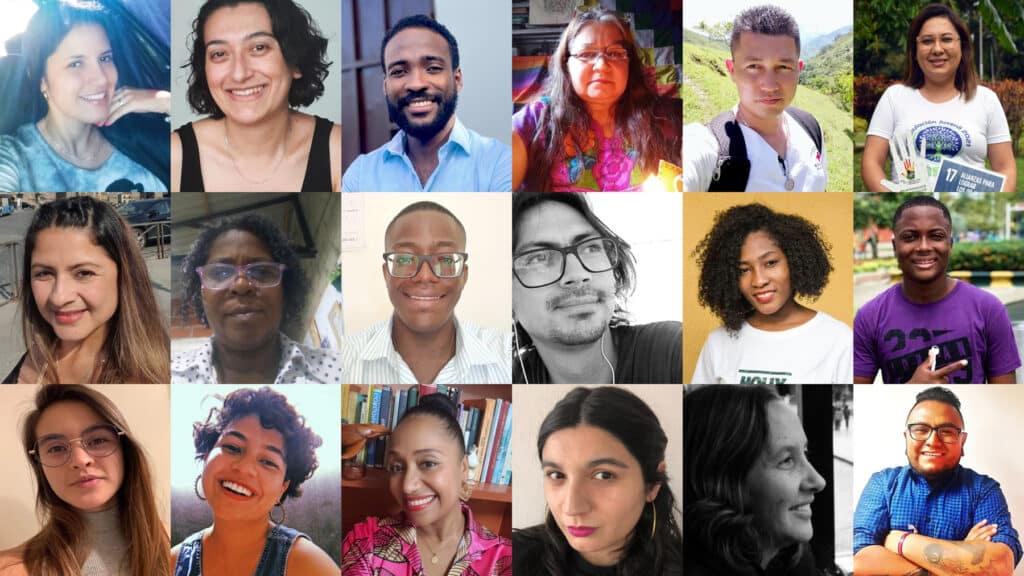
Chicago Peace Fellows Mutual Aid Collaborative hosted a Civic Partner Series conversation with University of Chicago Medicine Violence Recovery Team to learn about a unique public health model of violence interruption. And Global Fellow from Detroit, David Metler, provides insights into Swingset Activism and the idea of social justice education inspired by childhood. He proposes that we have much to learn from children who can help us integrate our activism into our lives and embrace the elements of playfulness, joyfulness, loving-kindness, presence, creativity, and our capacity to re-imagine what is possible.
August
The Chicago Peace Fellows Mutual Aid Collaborative this month carried out two activities. They launched the Safety + Cycling Team to tackle violence which occurs during road and traffic accidents, by providing bike helmets and safety tips at community events.
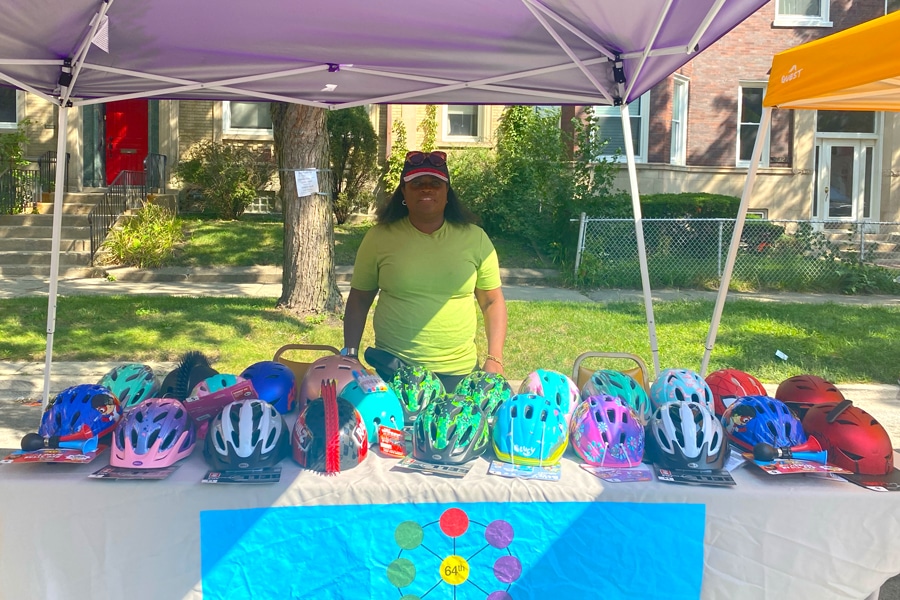
The Mutual Aid Collaborative also hosted a conversation with Dr. Andrew Papachristos to build connections and learn how the science of social networks can be used to understand and target support to people at the highest risk of becoming a victim of gun violence.
2019 Chicago Peace Fellow, Pastor Robert Biekman, piloted a Community of Practice utilizing the GATHER Platform to foster peer-to-peer learning amongst newly ordained pastors with the Evangelical Lutheran Church of America (ELCA). And Global Fellow from Argentina Diana Rocio Gomez Torres, explored the emergence of social movements across South America and bring visibility to the history and memory of these strategies of practical and symbolic resistance.
September
In September, our Fellows around the world embarked on several peacebuilding projects in honor of International Day of Peace 2022. These activities included: The launch of an apprenticeship program for Children Born of War in Uganda, using soccer to promote peace and reconciliation in Colombia, creating a new generation of youth leaders working on peacebuilding in Israel, Freestyling for social change in Colombia, and Peace Day activities from three Global Fellows in South America.
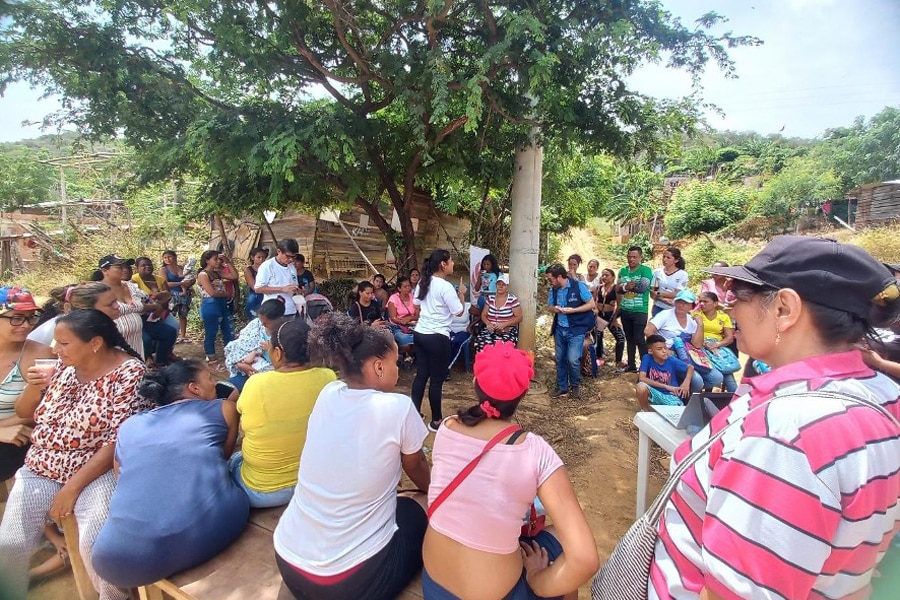
This month we also saw the graduation of the 2022 Chicago Peace Fellows! After embarking on a five-month learning and sharing journey together, their achievements were celebrated at the Chicago History Museum.
October
This month the Goldin Institute turned 20! For the past two decades the Goldin Institute has adopted an approach which is grassroots-led and embedded in kindness, compassion and learning, from everyone but most especially those closest to the issues. We promote the voices of those excluded voices who often have the most at stake in making progress and ensure that they have leadership roles in every social change movement. Which is why it is extremely exciting to celebrate 20 years of the Goldin Institute.
The Chicago Peace Fellows Mutual Aid Collaborative also launched Generation NOW, an idea conceived by Messiah Equiano, a 2021 Chicago Peace Fellow, which will provide opportunities for young people to write and produce a teen talk show addressing everyday issues that teenagers face. We also celebrated the Chicago Day of the Girl with Chicago Peace Fellow La’Keisha Gray-Sewell’s organization (Girls Like Me, Inc) hosting an event to both celebrate Black girls in the city and ensure their sense of belonging.
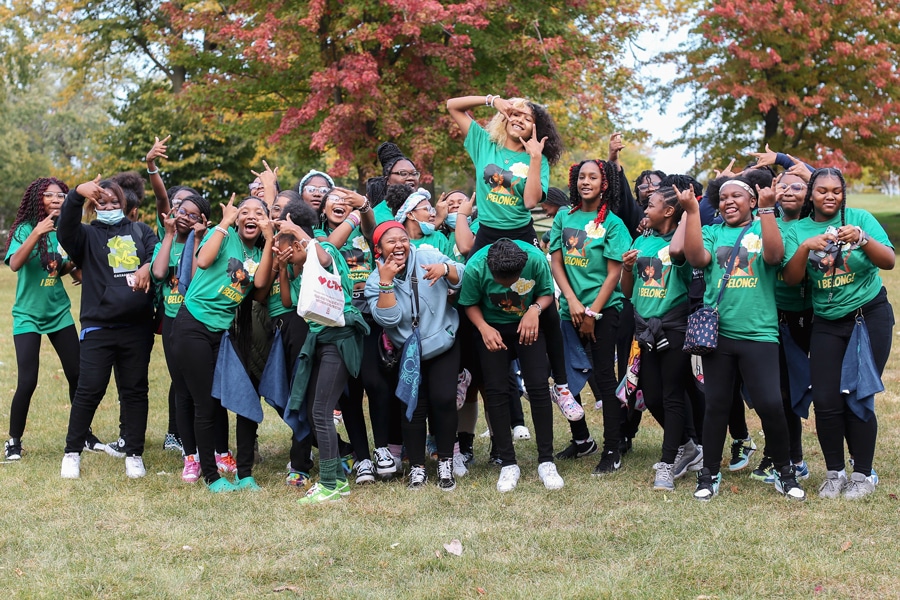
The first annual Sukkah Design Festival was also held this month, on October 9-16, showcasing North Lawndale’s Jewish history and providing social services to the community. Reshorna Fitzpatrick, 2019 Chicago Peace Fellow and Executive Pastor of the Stone Temple Baptist Church, was a member of the organizing committee, which included both community-based organizations and design firms.
November
Our 2022 Global Fellows (English-language cohort) graduated from the Gather program! At the graduation ceremony on 4th November, the 2022 Fellows demonstrated their achievements and shared their aspirations, recognizing how much stronger they now are together.
Global Fellow Oluchi Uzodimma from Nigeria also provided an update on the devastating impact of the recent flooding in Nigeria which has displaced more than 2 million people and damaged over 200,000 homes.
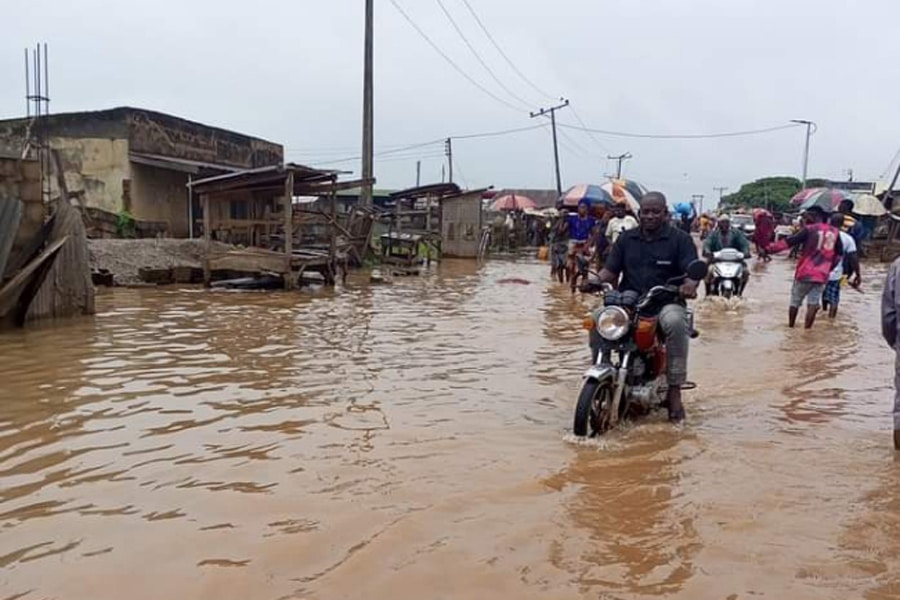
December
As we wind down to conclude the year, we were honoured to celebrate the achievements of the first Spanish-speaking cohort at their graduation ceremony on December 10th. The ceremony included performances in the form of song, freestyling, music, and poetry and reflected on what the Fellows had achieved, individually and collectively.
We remain humbled and honoured by the achievements of our global network of Fellows and we have much to be thankful for, especially the support of our global network of friends and colleagues. We would like to give a special thanks to all our sponsors and supporters for ensuring our leaders were able to continue their much-needed activities throughout the year.
YOLRED Begins Apprenticeship Program for Children Born of War
By Geoffrey Omony, 2018 Goldin Global Fellow, Uganda
We are delighted to announce the launch of YOLRED’s new apprentice program for Children Born of War (CBOW). In the Northern Ugandan context, CBOW refers to children who were born during captivity to combatants under the Lord’s Resistance Army. The war ended over a decade ago, but there are now approximately 6,000-8,000 CBOW living in Northern Uganda, many in Gulu district (where YOLRED is based). YOLRED have carried out extensive activities with the war-affected community, and we have found that what is most required for children born of war is economic empowerment and support. There are organisations conducting research projects and doing advocacy work, like ours, to try and reduce stigma against CBOW on a mass scale, but what is really lacking for CBOW is adequate livelihood opportunities. Even within organisations which try to tackle discrimination against CBOW there is a lack of job opportunities for them.

For this reason, YOLRED began thinking about a new initiative specifically designed to address this gap and to offer a form of economic empowerment which was not being attended to elsewhere, and thus in February 2022, we began this apprenticeship. YOLRED was provided with financial assistance to pilot the apprenticeship program for 6 months, to test the model and assess how it could work in practice. This donation funded the pilot program from February – July 2022; recognizing the importance of this apprenticeship and what it promotes, we have been awarded a grant from the CBOW project to fund this program for an additional year.
“The importance of this apprenticeship and what it promotes has been recognized by the CBOW Project; we are delighted to announce that we have been awarded a grant from them to continue this program for an additional year.”
This project was born out of an identified need amongst war-affected youth and is focused on children born of war (who are a category of marginalized youth in Northern Uganda), with greater attention paid to girls who face greater burdens. This program has been initiated to provide a career pathway for these marginalised young people as well as on-the-job training, and ultimately economic and social empowerment. Economic empowerment is the best way to support those most impacted by the conflict, and something we at YOLRED believe is essential to the continuation of a peaceful existence in the region.

The current apprentice, who is a young woman, has been employed with YOLRED since February 2022; her parents are categorized as the formerly abducted, and she was born in captivity. Her parents managed to escape the conflict when she was a young girl, but nonetheless she found reintegration a challenge due to environment she returned to, which stigmatizes CBOW. Of this opportunity, she states the following:
“Being an apprentice at YOLRED is a tremendous and miraculous thing that has ever happened to me. It has empowered me to be able to support myself and my close associates. Many people think that children born of war cannot do anything productive in life as a result of the traumatic experiences we incurred. This job will allow me to prove them wrong because I am able to challenge their negative perceptions about children born in captivity and show the positive ways in which we can work and interact with others, reducing the level of stigma on me and other children born of war. With my experience as an apprentice in mind, I feel any apprenticeship opportunity will be a great help to my brothers and sisters who were also Born of War.”
Having run this program for six months we have recognized its extreme value and importance not just the individual apprentice but for the wider CBOW community in Northern Uganda. Positions like this help to combat stigma against CBOW, especially for girls and women, but can also encourage other organisations and companies to follow suit and offer similar programs.

Extensive research has been done in Northern Uganda to assess the impact of the protracted conflict (which took place from 1987-2006) on children, including children abducted to serve in the Lord’s Resistance Army and children who were born in captivity. Many ex-child soldiers and CBOW who have returned still do not consider themselves free; they remain confined due to post-conflict struggles and excessive stigma and exclusion. As an organization which supports peace in the region, we are particularly focused on providing economic opportunities to those who face stigma or marginalization as a result of the conflict. There is also a lot of intergenerational trauma for children born in captivity who, if their background becomes known, are often labelled the dehumanising terms ‘rebel children’. These children experience a lot of social exclusion and bullying (which can lead to school-dropouts or desire to move to other cities), as they are often not accepted by extended family members and peers. Which is why this apprenticeship program is so valuable and important.

YOLRED adopt a ‘nothing about us without us’ policy and our initiatives are informed by local impact agendas. Our efforts are rooted in the region and led by Acholi people, rather than an approach which is imposed on us, and we centre survivors-needs in all of our programs.
Hands-On Peace: how youth leadership leads to peace
By Jamal Alkirnawi, 2018 Goldin Global Fellow, Rahat, Israel

"We all feel that the violence in Israeli society is increasing and threatening to get out of control. To prevent this grim scenario, it is not enough to deploy police forces and create deterrence. We must deal with the unrestrained functioning of the social networks that intensify the conflict in general and among the younger generation in particular."

The availability of social networks and electronic devices has created echo-chambers that drastically reduce the amount of information that contradicts and challenges our accepted perceptions. This significant drop in exposure to reliable and critical sources of information affects the youth specifically, resulting in herd behavior of acting without critical and adequate thoughts. This phenomenon can be explained by the growing sense of individualization among the post-1980 generations. These generations are the Y, Millennials, Z, and A generations, which we understand as Gen Y refers to those born between 1980 and 1985; Millennials were born between 1986 and 1995; Generation Z was born from 1996 until 2010; and the newest generation, generation alpha, are those born between 2010 and 2020s.
The culture of the internet interwoven with traditional beliefs oftentimes creates a contradiction between old and new values. Consequently, the tension we are observing in our Israeli communities in general, and particularly the Bedouin community, represents a period of transition from tradition to modernization. On one hand, our older generation Y group maintains their norms and practices; their traditions. On the other hand as the era of the internet permeates social networks, individualization has rapidly become a symbol of freedom and liberty. This, in turn, shapes the identity, language, and behavior of the members of Arab society. For instance, the usual norm in the Arab community is that families can make important decisions in determining the course of individuals’ lives. However, since the rise in internet usage the dynamic has become less and less reliant on the family and community. Everyone is occupied with his or her own virtual world and unable to create social contacts with outside environments, which is, in this case, their community.

In the recent escalation and the extreme cases of violence in the cities involved, we have seen the extreme consequences of this phenomenon. Teenagers got carried away by a wave of radicalization and instigation; they took to the streets to sow anarchy. Notable cases of this phenomenon are the events of “Operation Guardian of the Walls”, in which violent incidents and large-scale riots took place across Israel in May 2021. Hundreds were injured and three casualties were reported. This was overwhelming proof demonstrating the need to better educate teenage boys and girls to reduce the severe violence and incitement on digital networks.

To address the issue we initiated a new project in 2021. It is operated by the New Dawn Association in the Negev, a Bedouin-Jewish partnership located in the city of Rahat. So far, over 600 students in the Rahat area have been participating and benefiting from the series of educational sessions. We are currently looking into expanding the outreach to include the youth from nearby areas. The project promotes leadership programs and imparting skills to youth in the Bedouin society. Our long-term goal is to develop a generation of online activists who promote respectful democratic discourse and curb the violence and ranting therein.
To do this, we devote a lot of our resources to creating knowledge. We develop a wealth of expertise and tools that help the youth navigate the internet well. These include basic knowledge of principles of democracy, the difference between freedom of expression and incitement/hate speech, and how to create respectful discourses when engaging in online dialogues.
Our initiative of educating the Bedouin youth could not have been rolled out without the support from the partnerships, and foundations that sponsored in each and every capacity. We sincerely thank Eli Hurvitz and Foundation קרן שותפות for the generous and indispensable championship.
READ MORE AT
- https://www.jdn.co.il/video/1794825/
- https://www.israelhayom.co.il/magazine/hashavua/article/10194654
Enough is Enough: Fellow Raymond Richard Calls for Peace After Senseless Murder
In the wake of the senseless murder of 9-year old Janari Ricks, Global Goldin Fellow Raymond Richard joined peace builders from across the city to host a call for an end to the violence that is on the rise in Chicago.

The Founder of Brothers Standing Together, Raymond is also a resident of the near north side community where the murder of Janari Ricks took place. The murder hit home for Raymond in a personal way, as Janari is part of his extended family.

This is my community. I came back home to help as many people as I can help and save as many lives as I can save. Unfortunately, his life wasn't saved. So that means we dropped the ball. The men dropped the ball.
In his impassioned plea for the murders to stop, Raymond continued:
But we are here to say today, "Enough is Enough" and it's over with. We will no longer stand by idle while our children are being slaughtered at an alarming rate.

After calling for the shooter to turn himself in, Raymond continued:
To the children: I pledge to do all I can do to make your lives safe, even if it means laying down my own life... We as a people must get involved to stop the bloodshed of our people. It doesn't matter the color. We're dying at an alarming rate and we must take a stand now.
Raymond Richard is an Alumnus of the inaugural class of Global Goldin Fellows in 2018, a cohort of 20 passionate grassroots leaders from 16 countries from Africa, Asia, Europe, the Middle East and North and South America.
Click here to read the watch the video on WGN9 News.
Progress in the Peace Negotiations in the Philippines

The Comprehensive Agreement on the Bangsamoro (CAB) signifies a great milestone of peace negotiations over decades of talks in the Bangsamoro region in southern part of the Philippines. It is significantly the compilation and sum total of all the agreements, declarations, joint statements, principles and mechanisms reached and agreed upon between the government and the Moro Islamic Liberation Front (MILF) from the start of the peace talks in 1997 up to March 2014.

The principles of the negotiation recognized the justness and legitimacy of the cause of over 3,256,140 Bangsamoro people, their aspiration for the meaningful autonomy through a democratic process, the aim of finding a solution to the Bangsamoro question with honor, justice and dignity and the aim to end the fighting between the government and the MILF. The Bangsamoro Autonomous Region seeks to replace the Autonomous Region in Muslim Mindanao (ARMM) with a political entity that shall possess broader powers to address the decades-long aspiration of the Moro people for meaningful self-rule over their ancestral homeland, and that is where the Bangsamoro government now.
The Bangsamoro Organic Law realized another step to continue the infrastructure of peace process as stated in the CAB. This is to put in place and frontline the clear roadmap that will provide direction to transitional justice and reconciliation measures for the Bangsamoro struggle. It serves as mark of the commitment for peace as it proposes conflict transformation mechanisms on the ground.

The existence of normalization bodies in the CAB ensures human security and helps build a society that is committed to basic human rights where individuals are free from fear of violence and long held traditions and values. Under of which is the Joint Normalization Committee (JNC) which undertakes the process of normalization, Joint Peace and Security Committee (JPSC) that develops policies and operational guidelines for the effective partnership of the JPSTs and Joint Peace and Security Teams (JPSTs) as working for the maintenance of peace and order and the stability of the areas mutually identified by the GPH ( refers to Government of the Philippines) and the MILF. On the other hand, Independent Decommissioning Body (IDB) is mandated to oversee the process of decommissioning of the MILF forces and weapons.
The socio-economic programs were intensified on development efforts for rehabilitation, capacity building initiatives, reconstruction and institutionalizing programs to internally displaced persons (IDPs), and poverty-stricken communities. The Joint Task Force for Decommissioned Combatants and Their Communities (TFDCC) was established also to assist the panel to identify and implement socio-economic priorities and development projects for decommissioned MILF combatants and their communities.
The ceasefire mechanism including the Coordinating Committee on the Cessation of Hostilities (CCCH), International Monitoring Team (IMT) and Ad-Hoc Joint Action Group (AHJAG) are collaboratively working in the commitment to a general ceasefire necessitated to the ongoing peace talks and in the ironing out security issues and concerns in accordance with the security protocols agreed between the GPH and MILF. These are the on-going work and established commitment of both parties that will be reinforced its implementation.
There would be struggles in the transition period.
Lo Ivan Castillon
But, the pressing support and collaborative participation of international community to the Bangsamoro government provides significant account on the covenant established and put in place the sincerity of the government leaders to pursue it. There would be proactive and reactive measures in accompanying the transition phase, education, continuing campaign against potential bottleneck and organized working group to explore alternatives.
This would be an opportune time for the Bangsamoro leaders to serve and govern the Bangsamoro community as to ascertain their confidence and capacities on moral governance in responding to basic needs, reducing poverty, bridging social gaps, eliminating anti-social activities, improving human security, improving peace and enhancing unity within the territory.
Opportunities offer to challenge various stakeholders and sectors in government, private and civic organizations to work hand in hand in developing different conceptual issues, methodologies, analytical language and institutional practice and strategic approaches on theory and practice of moral governance in the Bangsamoro government.
The future leaders and general public are called for their active involvement in the exploration of the existing and potential linkages in support to Bangsamoro homeland. Moreover, there is a need to strengthen advocacy on peacebuilding, culture of peace, conflict transformation, active non-violence and peace process as long-term goal through series of campaigns, public consultations, fora, research and information and education campaigns among others. This will provide venue in acquiring rich knowledge, experiences and insights of diverse educational communities to benefit mutually through collaboration and solidarity among all stakeholders.
The processes are not just aiming to have the absence of war but are aiming to have a society wherein social justice prevails, economic system creates equal opportunities to all, ecological balanced establishes, respect and honor for uniqueness of one’s culture, traditions and beliefs and development of full human potentials made available.
Indeed, the CAB is the achievement of the present government that concludes the 16th congress and showcased its relevance to peace process and to the Bangsamoro government. As Bangsamoro, there are more to do, more opportunities to grab, more collaborations to link with, and more advocacies to work on towards the Bangsamoro aspirations to have shared vision (with the national government for national unity and reconciliation and within the Bangsamoro for peace and economic stability), shared leadership, good governance, improved peace and security, adequate and proper management of resources and more inclusive dividend of peace.
Peace Fellows Meet With Metropolitan Family Services

On Wednesday, April 8th, the Chicago Peace Fellows hosted a conversation with Metropolitan Family Services (MFS) to learn about their efforts to reduce the amount of gun violence in the city. MFS talked about three of their specific projects: Communities Partnering for Peace (CP4P), The Metropolitan Peace Academy, and Lights in the Night.
The Chicago Peace Fellows learned about the work of these interrelated projects to reduce violence, heard directly from program directors about their experiences, and explored how they can best be involved.
Communities Partnering for Peace, the Metropolitan Peace Academy, and Lights in the night are strategies meant to support community-based organizations provide on the ground services in communities across Chicago. Domonique Mccord, Director of Community Behavioral Initiatives, explained that the role of MFS in CP4P is to bring smaller community-based organizations together and provide professional services such as accounting, human resources and mental health services that would be difficult for street outreach organizations. MFS provides these services to organizations across the city.

The Chicago Peace Fellows also learned about the Metropolitan Peace Academy which seeks to professionalize street outreach and create a learning institution to share best practices across organizations. Vanessa Dereef, Director of the Metropolitan Peace Academy, shared that it is important for outreach workers to build relationships to support one another across the city. Several Chicago Peace Fellows were familiar with the Lights in the Night program which runs programs at night in public places over the summer. Several Fellows have participated in these activities and learned more about how they can be involved.

The Chicago Peace Fellows were really interested in how they can support the activities of MFS and be involved as community leaders in street outreach. Steve Perkins, Director of Outreach, explained that they can learn more about the street outreach organizations in their neighborhoods and share information when it’s appropriate. He encouraged fellows to participate in community activities and to get to know the people in their neighborhoods.
A Night to Remember!
By Frank Latin, Senior Advisor, Communications
For me, the Goldin Institute’s 2019 Chicago Peace Fellows graduation ceremony was an inspiring event. The ceremony marked the completion of a six-month fellowship in which myself and 18 other committed community leaders collaborated to complete an engaging, community-focused curriculum and attend other scheduled workshops. The Chicago Peace Fellow program, with the use of its GATHER platform, is designed to share new social change tools and concepts that can assist in creating safer and more peaceful communities with individuals who already working in high-need areas on the South and West sides of Chicago.

The event attracted close to 100 people, including family, friends, colleagues and civic leaders who showed up to acknowledge the collective work of the CPF graduates. The group is comprised of individuals who lead small organizations and do not allow our even smaller budgets to deter us from doing the work that our communities so desperately need.

Our budgets and our organizations are small, but our work has a huge impact in the communities we serve.
To be honest, it was a pleasant surprise to see so many people come out to honor the work of a small group of people whose work often goes unnoticed by the mainstream. The evening came full circle for me when I ran into an old colleague at the event, Susana Vasquez, who I hadn’t seen in a while. Susana volunteered to conduct our first strategic planning session over 12 years ago. The mission and vision we crafted back then has helped guide me to this point...And here we are, the Westside Media Project is now in its 14th year of engaging and empowering community residents to utilize digital media to tell their own stories.

In the end, the ceremony not only celebrated the work of the 2019 Chicago Peace Fellows, it also highlighted one of the core beliefs at the Goldin Institute that is not universally shared throughout the philanthropic community: Leaders of color who live in the communities in which they serve are more than capable of providing solutions to problems that exist in their communities.
The Goldin Institute thanks the Conant Family Foundation, the Polk Bros. Foundation, Chase Bank, the Partnership for Safe and Peaceful Communities and our generous network of champions for community driven social change for supporting the Chicago Peace Fellows
Download the Graduation Booklet to Learn More
Celebrating the Graduation of the Chicago Peace Fellows
By Ethan Michaeli, Senior Advisor for Communications

For Velvian Boswell, being a Chicago Peace Fellow transformed the way she saw her own neighborhood. Speaking to a room packed with family, friends and supporters at the Peace Fellows’ graduation, Boswell, who works as a recovery specialist for the Chicago Women's AIDS Project, recalled the component of the curriculum in which they were asked to create asset maps of their own neighborhoods. In the beginning, Boswell didn’t think there were many assets in her community, Englewood on the city’s South Side.
“At first, I thought of all the liquor stores,” Velvian said, “but I had to take a step back.”
“We have a lot of history, a lot of people, and a lot of resources in Englewood. That is what I learned as a Chicago Peace Fellow.” -- Velvian Boswell
Boswell was just one of 18 grassroots organizers who graduated from the first cohort of Chicago Peace Fellows on November 14 at an event space on Division Street in the Wicker Park neighborhood. Each of the Fellows lives and works in neighborhoods dealing with disproportionate rates of crime and violence, and they celebrated months of work sharing their experiences, learning new techniques, and expanding their networks as well as acquiring new contacts and resources.

The Fellows will join the Goldin Institute’s international cohort of grassroots organizers around the world who are developing innovative strategies for empowering their neighbors and fostering healing in areas torn by war and natural disaster. The Peace Fellows were trained through GATHER, which is both a software and a curriculum designed by the Goldin Institute to facilitate peer-to-peer learning.
“This is one of those moments when life comes full circle,” said Travis Rejman, the Goldin Institute’s executive director, introducing the Peace Fellows at the event.

Travis described the Goldin Institute’s origins in 2002 during a week-long conclave in Chicago that brought together an unprecedented roster of grassroots organizers from around the globe. Participants studied the city’s rich history of community organizing, and shared the wisdom they had acquired in their work in different cities before collectively conceiving of an organization that could help grassroots organizations foster conversations, build their networks, and tap new resources.
“We’ve been pursuing those principles and putting them into practice over the last 17 years in over 50 countries. The key to our mission to create spaces for grassroots leaders to learn and work together so they can connect around issues they care about and collaborate across borders.” -- Travis Rejman
The Peace Fellows program, Travis explained, was built on the lessons learned through these years of work and especially through the international GATHER Fellows. The asset map Velvian described is just one of the exercises designed to “understand power, privilege and race, and the intersectionality of how those forces intersect with our peace building.” All of the components of the curriculum were calibrated to “center voices of those who are often excluded, knowing that those who have the most at stake and the most wisdom.”

Overall, the Peace Fellows participated in 50 workshops, trainings and meetings with civic leaders, at least one event every two weeks and many weeks with multiple events. In addition to the shared learning sessions, the Peace Fellows collaboratively planned 8 projects in the summer and beyond with special funding from the Chicago Fund for Safe and Peaceful Communities.
“Over the past 17 years working in over 50 countries, we’ve seen that real and sustainable change is always rooted in the power of communities building on their assets and inviting voices people on the front lines to make decisions,” Travis said.
Goldin Institute Program Coordinator Burrell Poe praised the Peace Fellows for their dedication and assiduity, and welcomed them into the “community of practice” with the GATHER Fellows. An organizer himself, Burrell said the mutual support was essential for effecting change.
“It’s really about how do people who do the work stick together, how do they support each other,” Burrell said.
“At the end of the day, if I’m someone who’s working hard in Englewood, it’s nice for me to know someone who’s working hard in Austin. That connection is powerful because we’re doing the work in our own communities and sometimes we can feel so alone and being together a community of practice is so important.”
Peace Fellow Frank Latin, the founder and executive director of Westside Media Project, recalled one workshop at the Institute for Non Violence Chicago, where they spoke with case workers and others engaging with young men in the community at high risk for being both perpetrators and victims of violence. Many of the case workers have personal experience with street violence, and Frank remembered the conversation as robust and incisive, piercing the myths that cloud the picture of what is actually happening in neighborhood like Austin on the city’s West Side.

“I got to hear directly from people who look, quite frankly, just like me,” Frank said.
“We got to hear directly from people working on the front lines, some of the challenges that don’t make the news, like why are people carrying guns. Not everyone who is carrying a gun in Austin is a predator. A lot of people were trying to protect themselves, but once you get arrested, you’re going to same jail cell.” -- Frank Latin
Frank continued that it as a resident of another neighborhood handling high levels of violence, he knew already that it was a “no brainer necessity” to work with those whose past includes criminality. But often, the prevailing narrative in mainstream media, the academy, and even among social services are wary of direct contact with those most likely to be involved in violence.
“We all come from different points in life and we got to hear from people using resources and what they know in their communities to make a difference,” Frank said.
“We all come together regardless of our backgrounds and what we’ve been through to try and make a better place to live.”
Peace Fellow Dawn Hodges, executive director of Imani Community Development Corporation in South Chicago, talked about the collective planning process for deciding how to fund the summer projects. It took several rounds of very active conversations and lots of sticky notes as well as a few digital tools, but in the end, the Peace Fellows had decided on eight innovative initiatives, each of which involved multiple Fellows.

The summer projects included “Passport to Peace” events, community fairs with peace circles, tai chi classes and other services for community residents, the “Youth Exchange,” an overnight retreat at a Wisconsin camp site for young people from different neighborhoods, and a retreat for the Peace Fellows themselves, a rare opportunity to reflect and discuss.
“The powerful part was those who got funded less but needed more and those who got more we all ended up sharing, so all the projects that were going to be funded got funded,” Dawn explained.
Maria Velazquez, executive director of Telpochcalli Community Education Project in the Little Village neighborhood, admitted that she was not particularly tech-savvy when she received the iPad preloaded with the GATHER software. But she quickly got help both from the Goldin Institute staff and from other Peace Fellows.
That sense of camaraderie was key to the GATHER curriculum’s success for Maria. After 17 years at Telpochcalli, a mostly volunteer organization, she focused on learning new techniques that will make collective decision more effective. But overall, Maria was thrilled to find a new cohort of peers with whom she can share her experiences and challenges.
“Often, we feel very isolated like we are the only ones doing it. Now I have a team of people I can turn to.” -- Maria Velazquez
The event continued with comments from other Fellows as well as supporters including Conant Family Foundation Executive Director Leslie Ramyk, who collaborated closely with Travis to fund the first class of Peace Fellows and pledged to do what she could to make sure there would be additional cohorts.
"Thank you for being the inaugural Chicago Peace Fellows. I’m so excited with everything that happened this year. The least I can do – and what I must do – is raise the money so we can do this again.” -- Leslie Ramyk, Conant Family Foundation
The graduation celebration closed with a rousing – if slightly off-key – group sing-along led by Peace Fellow Gloria Smith, who wrote new lyrics under the title “We are building up a new world” to the tune of the traditional song “Jacob’s Ladder.”
The Goldin Institute thanks the Conant Family Foundation, the Polk Bros. Foundation, Chase Bank, the Partnership for Safe and Peaceful Communities and our generous network of champions for community driven social change for supporting the Chicago Peace Fellows
